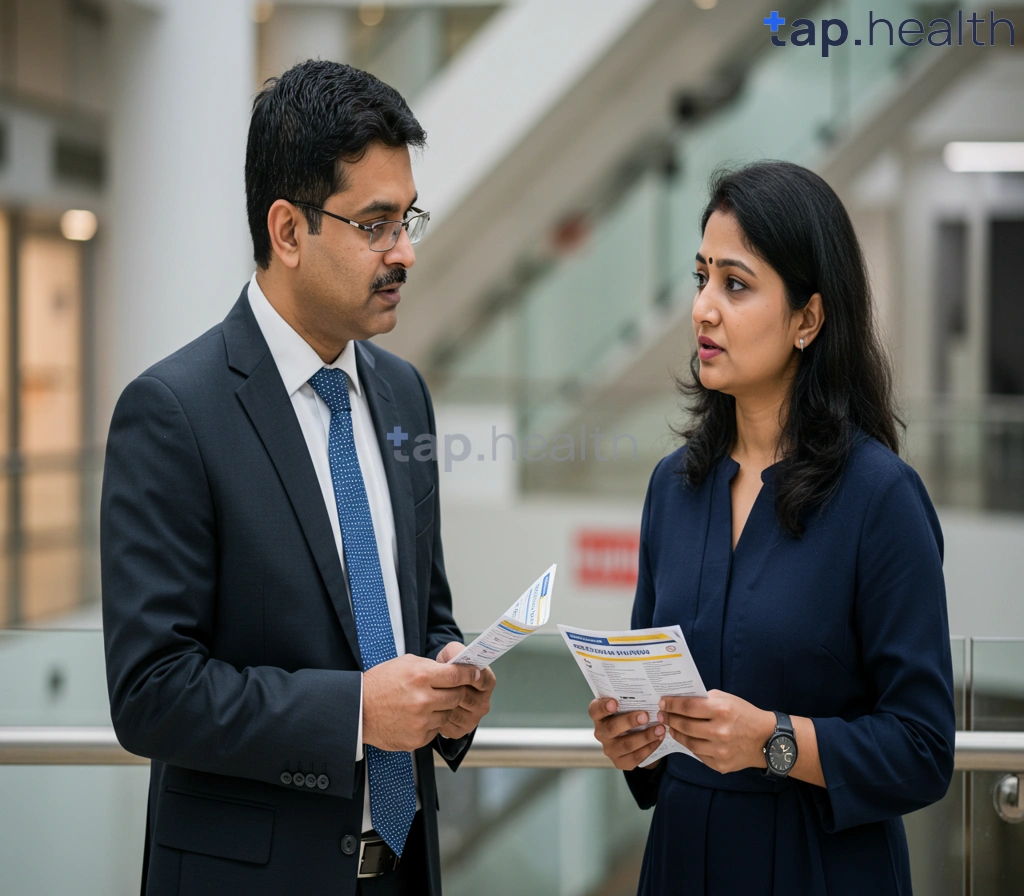Table of Contents
- Diabetes, Alcohol, and Cancer Risk: What You Need To Know
- Alcohol Consumption and Diabetes: Increasing Your Cancer Risk?
- Understanding the Link Between Diabetes, Alcohol, and Cancer
- Lower Your Cancer Risk: Managing Diabetes and Alcohol Intake
- Diabetes and Alcohol: A Guide to Reducing Your Cancer Risk
- Frequently Asked Questions
- References
Navigating life with diabetes already presents numerous challenges, but did you know that alcohol consumption can significantly impact your health in unexpected ways? This is especially true when considering your risk of certain cancers. Understanding the connection between Diabetes and Alcohol: Understanding Your Cancer Risk is crucial for making informed decisions about your well-being. This blog post will explore the complex relationship between these factors, providing you with clear, evidence-based information to help you manage your health effectively. Let’s delve into the details and empower you to take control of your future.
Diabetes, Alcohol, and Cancer Risk: What You Need To Know
Diabetes significantly increases your risk of several cancers, and the combination of diabetes and alcohol consumption elevates this risk even further. This is particularly relevant in Indian and tropical countries where both diabetes and alcohol consumption rates are rising. Research shows a strong correlation between these factors and increased cancer incidence. For example, studies have shown that smokers with diabetes face a doubled mortality rate due to cardiovascular issues, highlighting the synergistic effect of multiple risk factors. This increased risk extends to various cancers.
Understanding the Link
Alcohol’s impact on the body is multifaceted. It disrupts normal cellular function, weakens the immune system, and can lead to chronic inflammation—all factors that contribute to cancer development. In individuals with diabetes, these effects are amplified. The already compromised metabolic processes in diabetic individuals make them more susceptible to the damaging effects of alcohol. This can lead to increased oxidative stress and DNA damage, further increasing the likelihood of cancerous cell growth. This is especially concerning in tropical climates, where certain types of cancers are more prevalent. For a deeper understanding of the causal relationship, read more in our article, Does Diabetes Cause Cancer?
Reducing Your Risk
Moderation is key. Limiting alcohol consumption is crucial for everyone, but particularly for individuals with diabetes. Making informed lifestyle choices, including dietary changes and regular exercise, can significantly reduce the risk of developing cancer. In Indian and tropical countries, access to quality healthcare and awareness campaigns can be vital in mitigating these risks. Consult your doctor for personalized advice, especially if you have a family history of cancer or existing diabetes. Prioritizing your health by making informed choices can make a significant difference in lowering your cancer risk. Regular check-ups are also essential for early detection and treatment. If you’re looking for ways to manage your alcohol intake while living with diabetes, check out our guide: How to Safely Enjoy Alcohol While Managing Diabetes.
Alcohol Consumption and Diabetes: Increasing Your Cancer Risk?
The link between diabetes and an increased risk of certain cancers is well-established. But what about the role of alcohol, especially in regions like India and other tropical countries where both diabetes and alcohol consumption are prevalent? The relationship is complex and concerning. Research suggests a significant correlation; for example, studies show that even moderate alcohol intake can elevate the risk.
Understanding the Connection
Diabetes weakens the body’s ability to fight off infections and cellular damage. This vulnerability is exacerbated by alcohol consumption. Alcohol’s effect on blood sugar levels can be unpredictable, potentially worsening insulin resistance and contributing to further complications. Furthermore, alcohol itself is a carcinogen, meaning it can directly damage DNA and increase the risk of cancer development. This risk is amplified when combined with the already increased cancer vulnerability associated with diabetes. The consumption of sugary beverages further complicates the picture, with research indicating that daily consumption raises diabetes risk by 26%. This heightened diabetes risk, in turn, increases the likelihood of developing alcohol-related cancers. It’s important to note that Can Alcohol Abuse Cause Diabetes? is a question many ask, highlighting the complex interplay between these factors.
Regional Considerations in India and Tropical Countries
In many Indian and tropical countries, cultural practices may involve regular alcohol consumption alongside diets high in carbohydrates, further increasing the risk of type 2 diabetes. The combination of these factors presents a significant public health concern.
Taking Control of Your Health
Managing your blood sugar levels effectively is crucial. This means adhering to a healthy diet, regular exercise, and, if necessary, medication prescribed by your doctor. Moderating or abstaining from alcohol consumption is strongly recommended, especially for individuals with diabetes. Consult your physician or a qualified healthcare professional to discuss personalized strategies for lowering your cancer risk. They can provide tailored advice considering your individual circumstances and risk factors. Understanding why Diabetics Test Positive for Alcohol can also be helpful in managing this complex health issue.
Understanding the Link Between Diabetes, Alcohol, and Cancer
Diabetes significantly increases the risk of several cancers, and alcohol consumption further elevates this risk, particularly in individuals aged 20-64 and 65+. According to the International Diabetes Federation Diabetes Atlas, a substantial portion of the global diabetic population—61%—falls within the 20-64 age bracket, with the remaining 39% being 65 and older. This data highlights the vulnerability of a large population segment. This is especially concerning in Indian and tropical countries, where diabetes prevalence is high and cultural norms often involve alcohol consumption.
Alcohol’s Impact on Cancer Risk in Diabetics
The combined effect of diabetes and alcohol on cancer risk is synergistic; they amplify each other’s negative effects. Alcohol is a known carcinogen, and its metabolism in the body generates harmful byproducts that can damage DNA and promote cancer cell growth. For individuals with diabetes, already facing impaired immune function and cellular processes, this damage can be significantly more impactful. This heightened vulnerability applies to various cancers, including liver, colorectal, pancreatic, and breast cancers. Moreover, excessive alcohol consumption can worsen blood sugar control, further complicating diabetes management and increasing overall health risks. This is further complicated by conditions often associated with diabetes, such as the link between diabetes and fatty liver, which can increase susceptibility to certain cancers.
Reducing Your Risk: Practical Steps
For individuals in Indian and tropical countries living with diabetes, mitigating cancer risk requires a multifaceted approach. This includes strictly managing blood sugar levels through diet, exercise, and medication as prescribed by your physician. Critically, it also means limiting or eliminating alcohol consumption. Even moderate alcohol intake can elevate cancer risk in the presence of diabetes. Consider adopting a healthier lifestyle, seeking regular medical check-ups, and discussing alcohol consumption limitations with your doctor. Early detection and preventative measures are crucial in reducing the risk of developing cancer. Managing weight is also critical, as highlighted in our article on understanding the link between diabetes and obesity.
Lower Your Cancer Risk: Managing Diabetes and Alcohol Intake
Diabetes and alcohol consumption are significant risk factors for several cancers, particularly in individuals residing in tropical and Indian regions. Understanding this connection is crucial for proactive health management. Up to 80% of Type 2 diabetes cases can be delayed or prevented through lifestyle changes, a statistic highlighting the power of preventative measures. This emphasizes the importance of controlling blood sugar levels and limiting alcohol intake to mitigate cancer risk.
Understanding the Link Between Diabetes, Alcohol, and Cancer
The interplay between diabetes, alcohol, and cancer is complex. High blood sugar levels, a hallmark of diabetes, create a favorable environment for cellular damage and uncontrolled growth—key factors in cancer development. Similarly, excessive alcohol consumption is directly linked to several types of cancer, including liver, breast, and colorectal cancers. The combined effect of both factors exponentially increases cancer risk, especially in populations with genetic predispositions common in parts of India and tropical countries. Consider seeking guidance from a healthcare professional for personalized risk assessments and tailored strategies. Managing diabetes effectively is crucial, and as you age, this becomes even more important. For insights on Managing Diabetes as You Age: Challenges and Solutions, please refer to our related article.
Practical Steps for Reducing Your Cancer Risk
In tropical and Indian climates, where dietary habits and lifestyle factors can significantly impact health, proactive management is essential. Maintaining a balanced diet rich in fruits, vegetables, and whole grains is vital for blood sugar control. Regular exercise, even moderate physical activity like daily walks, significantly aids in managing diabetes. Moderating alcohol consumption, or ideally abstaining entirely, is strongly recommended. Regular check-ups and screenings can help detect potential issues early, improving treatment outcomes. Prioritizing these lifestyle changes can significantly reduce the risk of developing cancer. Remember, small changes can lead to big improvements in your long-term health. Furthermore, effectively managing cholesterol is another key component to overall health, especially when dealing with diabetes. Learn more about How to Manage Cholesterol Levels with Diabetes?
Diabetes and Alcohol: A Guide to Reducing Your Cancer Risk
Diabetes significantly increases your risk of developing various cancers, and alcohol consumption further exacerbates this risk. This is especially concerning in Indian and tropical countries where certain lifestyle factors and dietary habits might increase susceptibility. Understanding this connection is crucial for proactive health management. For women with diabetes, the risk is even more pronounced, with a 40% higher risk of heart disease compared to men with diabetes, highlighting the critical need for careful lifestyle choices. This increased risk emphasizes the importance of following the advice in our blog on Protect Your Heart from Diabetes: 5 Essential Steps.
Managing Alcohol Consumption
Moderation is key. For individuals with diabetes, even moderate alcohol intake can increase the risk of certain cancers, including liver, breast, and colorectal cancers. In many Indian and tropical cultures, social gatherings often involve alcohol. It’s vital to be mindful of portion sizes and frequency of consumption. Choosing low-alcohol options or opting for alcohol-free alternatives during social events can be beneficial strategies.
Lifestyle Modifications for Cancer Prevention
Beyond alcohol, maintaining a healthy lifestyle is paramount. A balanced diet rich in fruits, vegetables, and whole grains, combined with regular physical activity, can significantly reduce your overall cancer risk. Regular check-ups with your doctor are crucial, especially for monitoring blood sugar levels and early detection of any potential health issues. These preventative measures are especially important considering the higher prevalence of diabetes-related complications in women. Planning trips while managing your diabetes can also be tricky, but don’t let that stop you! Check out our tips on Traveling with Diabetes: Essential Tips for a Safe & Healthy Journey.
Seeking Support in Your Region
In India and tropical countries, access to quality healthcare and support networks can vary. Connecting with local diabetes support groups or healthcare professionals can provide valuable information and resources tailored to your specific region and needs. Remember, making informed choices about your lifestyle can significantly impact your long-term health and wellbeing. Take proactive steps today to reduce your cancer risk.
Frequently Asked Questions on Diabetes and Alcohol: Understanding Your Cancer Risk
Q1. How does diabetes affect my risk of getting cancer?
Diabetes significantly increases your risk of developing cancer. This is because diabetes disrupts your body’s normal functions, making you more vulnerable.
Q2. Does alcohol increase my cancer risk if I have diabetes?
Yes, alcohol consumption significantly raises your cancer risk, especially if you have diabetes. Alcohol further impairs your body’s ability to fight off cancer-causing changes.
Q3. What lifestyle changes can I make to lower my cancer risk?
Maintaining healthy blood sugar levels through diet and exercise is crucial. Reducing or eliminating alcohol intake is also vital. Regular checkups for early cancer detection are recommended.
Q4. Why is this risk higher in certain regions like India?
In regions like India and other tropical areas, both diabetes and alcohol consumption are more prevalent. This combination increases the likelihood of developing cancer.
Q5. What steps can I take to manage my diabetes and reduce my cancer risk?
Focus on effective blood sugar management with diet, exercise, and medication as prescribed by your doctor. Combine this with significant alcohol reduction or abstinence. Regular health checkups are also essential.
References
- A Practical Guide to Integrated Type 2 Diabetes Care: https://www.hse.ie/eng/services/list/2/primarycare/east-coast-diabetes-service/management-of-type-2-diabetes/diabetes-and-pregnancy/icgp-guide-to-integrated-type-2.pdf
- Your Guide to Diabetes: Type 1 and Type 2: https://www.niddk.nih.gov/-/media/Files/Diabetes/YourGuide2Diabetes_508.pdf




